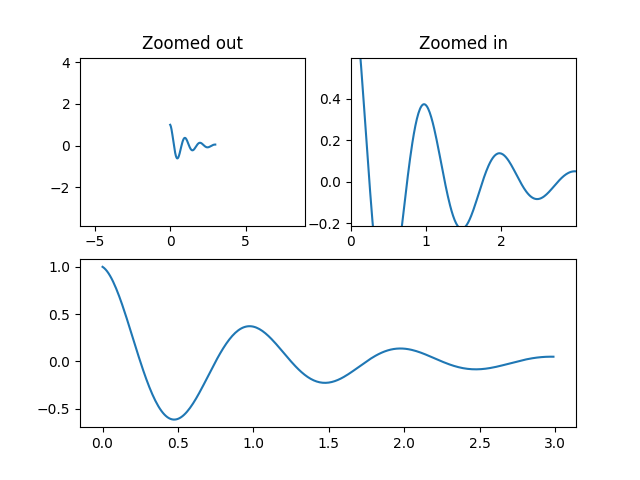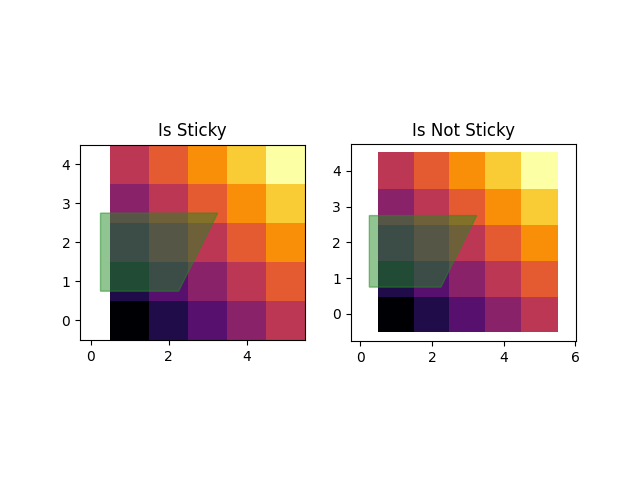注意
跳到末尾下载完整示例代码。
使用边距(margins)和粘性边缘(sticky_edges)控制视图限制#
本示例中的第一张图展示了如何使用 margins 来缩放绘图,而不是使用 set_xlim 和 set_ylim。第二张图演示了某些方法和绘图对象(artist)引入的边缘“粘性”概念以及如何有效地解决它。
import matplotlib.pyplot as plt
import numpy as np
from matplotlib.patches import Polygon
def f(t):
return np.exp(-t) * np.cos(2*np.pi*t)
t1 = np.arange(0.0, 3.0, 0.01)
ax1 = plt.subplot(212)
ax1.margins(0.05) # Default margin is 0.05, value 0 means fit
ax1.plot(t1, f(t1))
ax2 = plt.subplot(221)
ax2.margins(2, 2) # Values >0.0 zoom out
ax2.plot(t1, f(t1))
ax2.set_title('Zoomed out')
ax3 = plt.subplot(222)
ax3.margins(x=0, y=-0.25) # Values in (-0.5, 0.0) zooms in to center
ax3.plot(t1, f(t1))
ax3.set_title('Zoomed in')
plt.show()

关于某些绘图方法的“粘性”#
一些绘图函数会使轴限制变得“粘性”,或者说不受 margins 方法的控制。例如,imshow 和 pcolor 期望用户希望限制紧密贴合图中显示的像素。如果不需要这种行为,则需要将 use_sticky_edges 设置为 False。请看下面的例子
y, x = np.mgrid[:5, 1:6]
poly_coords = [
(0.25, 2.75), (3.25, 2.75),
(2.25, 0.75), (0.25, 0.75)
]
fig, (ax1, ax2) = plt.subplots(ncols=2)
# Here we set the stickiness of the Axes object...
# ax1 we'll leave as the default, which uses sticky edges
# and we'll turn off stickiness for ax2
ax2.use_sticky_edges = False
for ax, status in zip((ax1, ax2), ('Is', 'Is Not')):
cells = ax.pcolor(x, y, x+y, cmap='inferno', shading='auto') # sticky
ax.add_patch(
Polygon(poly_coords, color='forestgreen', alpha=0.5)
) # not sticky
ax.margins(x=0.1, y=0.05)
ax.set_aspect('equal')
ax.set_title(f'{status} Sticky')
plt.show()

参考
本示例展示了以下函数、方法、类和模块的使用
脚本总运行时间: (0 分 1.649 秒)